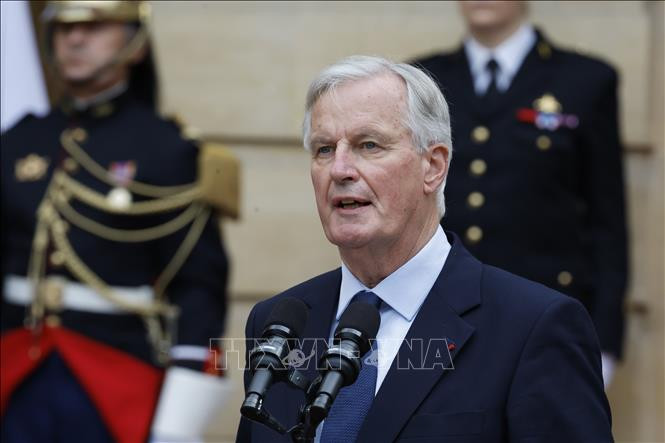In an effort to end the prolonged political deadlock, on September 19, new French Prime Minister Michel Barnier submitted to President Emmanuel Macron a new cabinet list, including many new faces holding most of the important positions.

According to some anonymous sources, although there are no big surprises or prominent names, the composition of the new government seems to lean towards the right, compared to the previous centrist government. Specifically, Prime Minister Barnier proposed Minister in charge of European affairs Jean-Noel Barrot to take over as Foreign Minister. Meanwhile, Mr. Bruno Retailleau, leader of the right-wing French Republicans (LR) party, was nominated to take over as Interior Minister. Another important figure who is expected to keep his position is Defense Minister Sebastien Lecornu.
It is not yet clear when the full line-up of the new government will be officially announced. However, the Prime Minister’s Office has confirmed that the line-up will be a government “ready to act to serve the people.”
Earlier, French President Emmanuel Macron appointed Mr. Barnier, former Minister of Environment, Foreign Affairs and Agriculture and also former chief Brexit negotiator of the European Union (EU), as head of the government. Currently, the French National Assembly has 3 political blocs holding the same number of seats, including the group of supporters of President Macron's centrist policy - a loose alliance with Mr. Barnier's conservative party, the left-wing coalition New Popular Front (NFP) and the right-wing National Rally (RN). In the parliamentary election in July, the NFP won the most votes but not enough for a majority. NFP leaders have announced that they will vote no confidence in any government not led by this party. Meanwhile, the RN does not object to President Macron's appointment of Mr. Barnier as the new Prime Minister.
The pressure is growing on Barnier to complete his cabinet as the government faces a deadline of October 1 to present its draft budget for 2025. Even if his cabinet is chosen and approved by parliament, his government will face a fierce battle over tax and spending issues. In particular, both the NFP and RN pledged ahead of the July election to overturn a pension reform introduced by President Macron last year that raised the official retirement age from 62 to 64 and has been met with protests.